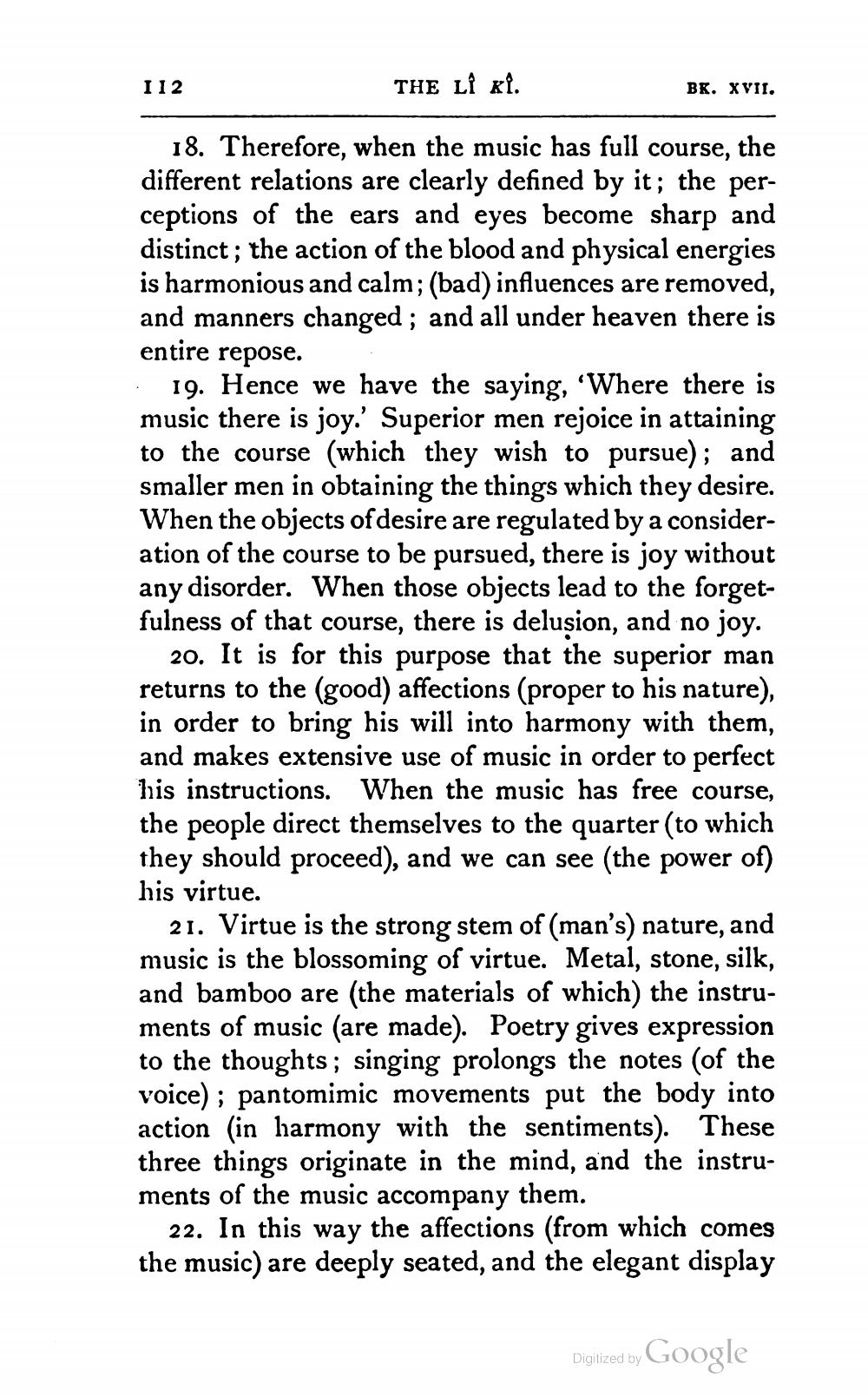________________
112
THE LÎ ki.
BK. XVII.
18. Therefore, when the music has full course, the different relations are clearly defined by it; the perceptions of the ears and eyes become sharp and distinct; the action of the blood and physical energies is harmonious and calm; (bad) influences are removed, and manners changed ; and all under heaven there is entire repose. · 19. Hence we have the saying, 'Where there is music there is joy.' Superior men rejoice in attaining to the course (which they wish to pursue); and smaller men in obtaining the things which they desire. When the objects of desire are regulated by a consideration of the course to be pursued, there is joy without any disorder. When those objects lead to the forgetfulness of that course, there is delusion, and no joy.
20. It is for this purpose that the superior man returns to the (good) affections (proper to his nature), in order to bring his will into harmony with them, and makes extensive use of music in order to perfect his instructions. When the music has free course, the people direct themselves to the quarter (to which they should proceed), and we can see the power of) his virtue.
21. Virtue is the strong stem of (man's) nature, and music is the blossoming of virtue. Metal, stone, silk, and bamboo are (the materials of which) the instruments of music (are made). Poetry gives expression to the thoughts; singing prolongs the notes (of the voice); pantomimic movements put the body into action (in harmony with the sentiments). These three things originate in the mind, and the instruments of the music accompany them.
22. In this way the affections (from which comes the music) are deeply seated, and the elegant display
Digitized by Google




